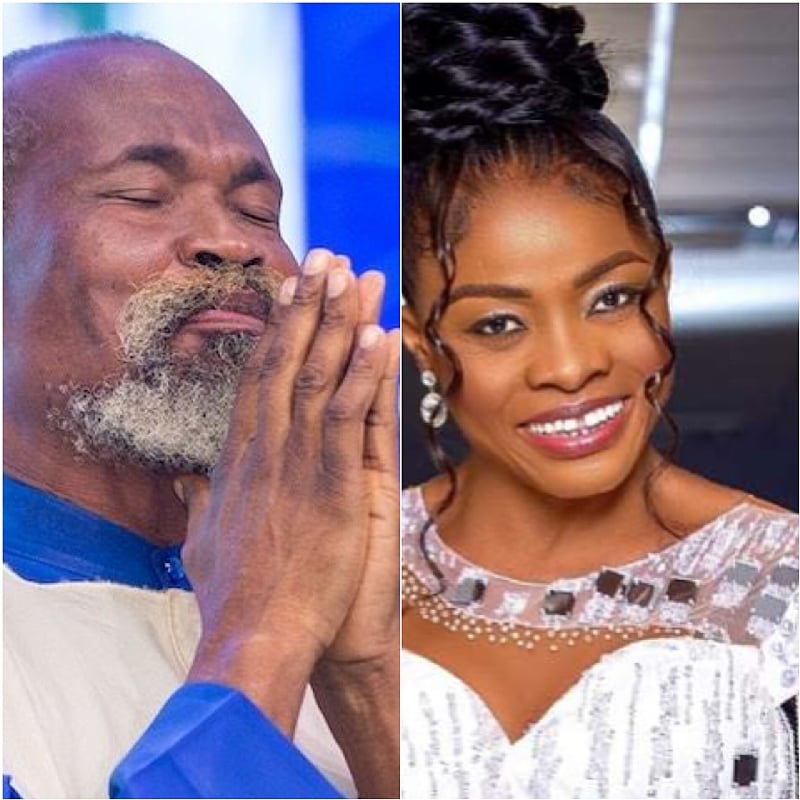The religious landscape in Ghana has been recently disturbed by a public clash between Prophet Adom Kyei Duah and Evangelist Diana Asamoah. The controversy stems from Evangelist Asamoah’s accusations against Prophet Duah, whom she accuses of misleading his followers and engaging in practices she deems unbiblical. The central point of contention revolves around Prophet Duah’s distribution of “Sobolo,” a hibiscus drink, which he reportedly refers to as the “Blood of Jesus.” This act prompted Evangelist Asamoah to publicly denounce Prophet Duah, categorizing him among those she believes exploit their religious authority for personal gain rather than the spiritual well-being of their congregations. This incident highlights broader concerns about the potential for misinterpretation and manipulation within religious communities.
Evangelist Asamoah’s criticisms extend beyond this specific incident. She has expressed wider concerns about what she perceives as a growing trend of self-enrichment within religious circles in Ghana. She argues that many religious leaders prioritize personal wealth over the genuine spiritual guidance and support that their followers seek. Her public pronouncements serve as a cautionary message to the public, urging them to critically evaluate religious teachings and exercise discernment in choosing whom to follow. She emphasizes the importance of scrutinizing the actions and motivations of religious figures, advocating for skepticism towards potentially misleading practices and doctrines.
Prophet Adom Kyei Duah, facing these allegations, has responded with a declaration of innocence, stating that “Heaven will speak for me.” He maintains that his actions are divinely guided and that his teachings are rooted in genuine faith. This statement suggests a belief that divine intervention will ultimately vindicate him against these accusations. His response avoids directly addressing the specific claims regarding the “Sobolo” incident or the broader allegations of financial impropriety raised by Evangelist Asamoah. Instead, he appeals to a higher authority, leaving it to divine judgment to clear his name.
This clash between Prophet Duah and Evangelist Asamoah raises significant questions about religious authority, interpretation, and accountability within Ghanaian society. It highlights the potential vulnerabilities of individuals seeking spiritual guidance and the need for informed decision-making within religious contexts. The differing perspectives underscore the challenges in determining the authenticity of religious practices and the potential for divergent interpretations of religious texts and traditions. The controversy serves as a reminder of the ongoing debate surrounding the role and responsibilities of religious leaders and the importance of critical engagement with religious teachings.
The “Sobolo” incident, while seemingly isolated, symbolizes the wider tensions and anxieties surrounding religious practices in Ghana. The act of labeling a common beverage as the “Blood of Jesus” raises questions about the symbolic boundaries within religious expression and the potential for misinterpretations that can arise from such practices. Evangelist Asamoah’s strong reaction reflects a concern for the safeguarding of religious doctrines and a resistance against practices she perceives as potentially misleading or exploitative. The incident reveals the diverse interpretations of religious symbols and the complexities of managing religious discourse in a pluralistic society.
The public exchange between Prophet Duah and Evangelist Asamoah underscores the vital importance of ongoing dialogue and critical evaluation within religious communities. It prompts reflection on the power dynamics inherent in religious leadership and the potential for exploitation when spiritual authority is misused. The clash serves as a reminder that blind faith can be susceptible to manipulation and that questioning and discernment are crucial aspects of responsible religious engagement. Ultimately, this controversy encourages individuals to engage critically with religious teachings, to evaluate the actions of religious leaders, and to prioritize their own spiritual well-being in navigating the complexities of faith and belief. It emphasizes the need for accountability and transparency within religious institutions and the importance of fostering an environment where open discussion and critical thinking are encouraged.














